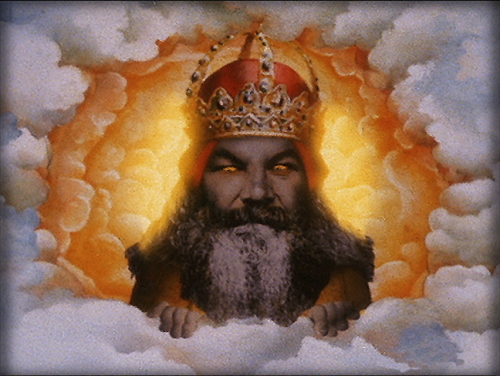keld feldspar wrote:Putting temporal constraints on something that is quite decidedly not temporal ....
Who has done that? I certainly have not.
The issue is whether, presuming the existence of God as described in the Judeo-Christian tradition(s), human beings have free will. Human free will, if it exists, is not "something that is quite decidedly not temporal".
Human free will, if it exists, most emphatically
is temporal.
Do you not exist in a universe in which there is time -- in which there is a significant difference between yesterday and tomorrow? I do.
For you, is it not the case that you can (or, at least, you believe that you can) choose what you will do tomorrow? It is for me.
For you, is it not the case that you cannot choose not to have done what you did yesterday? (As distinct from wishing that you had not done it.) It is for me.
For you, is it not the case that you cannot change the past, but you can (or, at least, you believe that you can) affect the future by what you choose to do? It is for me.
Speculations about God's relationship with time can be endlessly fascinating. (Is God extratemporal? Omnitemporal? Both? What are the logical implications of any of those positions?)
But they have nothing to do with the question of
human free will. The question of
human free will involves
human beings' relationship with time.
Whatever God's relationship with time may be, the fact remains that my relationship with time is -- because God created me and the temporal universe which I inhabit -- such that there is a past, and the past is not the same as the future. Yesterday and tomorrow may be the same to God, but they are not the same to me, and I doubt that I am going out on a limb by suggesting that they are not the same to you either.
In the temporal universe, I have not yet chosen whether to do X or not to do X. In the temporal universe, God already knows either that I will "choose" to do X or that I will "choose" not to do X. In the temporal universe, it is impossible for God to be wrong. So in the temporal universe, if God already knows that I will "choose" to do X, then my "choice" to do X is foreordained and, hence, not a choice at all. And in the temporal universe, if God already knows that I will "choose" not to do X, then my "choice" not to do X is foreordained and, hence, not a choice at all.
Play all the games you want with timelessness, extratemporality, omnitemporality, the nature of eternity, the nontemporal nature of God's knowledge, etc., etc., etc. Have as much fun with that as you can get out of it. But it does not matter to the question which we are discussing.
What matters to the present issue is whether, given the alleged existence and claimed attributes of God, I (or you or anyone else), as a temporal being inhabiting a temporal universe, can have a free will that operates temporally in that temporal universe.
The challenge for Christians is to explain how that can be. Exegeses on the nontemporal nature of God do not explain anything about the alleged free will of a temporal being inhabiting and operating in a temporal universe. They are simply a dodge.
And it greatly matters for Christianity. If human beings have free will, then the claim that God is omniscient and omnipotent and the creator of everything is false, in which case the whole of Christianity falls apart. If God is omniscient and omnipotent and the creator of everything, then the claim that human beings have free will is false, and the fact that some human beings will be condemned to eternal torment is entirely the result of God's having chosen to create them for the very purpose of condemning them.
(How God's having created people simply so that He/She/It could torture them forever reflects on His/Her/Its being "loving" and "just" is for each of us to determine for her- or himself. I think that I have made my view sufficiently clear.)
But you are in good company. The greatest Christian thinkers have been dodging the question for centuries, precisely because they have never been able to produce any such explanation. Augustine could not do it, Aquinas could not do it, and so forth. All of them evaded it, twisted themselves into anti-logical intellectual contortions in addressing it, or simply run away from it.
Which is exactly what is still happening today.
Reason is valuable only when it performs against the wordless physical background of the universe.

